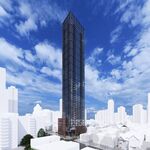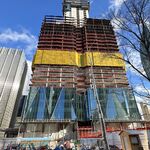Irishmonk
Senior Member
As this nameless, misbegotten decade staggers to a merciful close what are peoples' impressions of how Toronto fared throughout it all? Personally, I think Toronto has done rather well, despite numerous setbacks like Sars, Mel Lastman and the Great Recession. Here's my top 5 in each category:
(H)aught:
David Miller (for his mayoring--not his hair)
the "Big Seven" superbuild projects: (AGO, 4SC etc...)
improved waterfront/Harbourfront
the endless real estate boom
decreasing crime rate
Naught:
Sars
Mel Lastman
corporate losses (Eaton's, Imperial Oil, Inco, Nortel, ATI...)
Municipal strikes
the Great Recession
Discuss, disagree, add to the list...
(And for the pedants who insist that the decade ends next year, please hold your comments until next year )
)
(H)aught:
David Miller (for his mayoring--not his hair)
the "Big Seven" superbuild projects: (AGO, 4SC etc...)
improved waterfront/Harbourfront
the endless real estate boom
decreasing crime rate
Naught:
Sars
Mel Lastman
corporate losses (Eaton's, Imperial Oil, Inco, Nortel, ATI...)
Municipal strikes
the Great Recession
Discuss, disagree, add to the list...
(And for the pedants who insist that the decade ends next year, please hold your comments until next year




